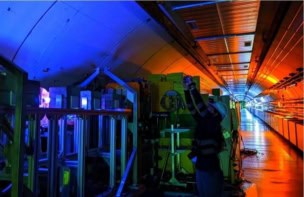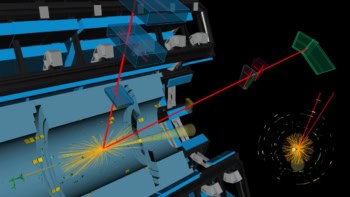The CERN particle physics laboratory has rejected a plea from physicists hunting the Higgs boson to keep the Large Electron Positron collider running during 2001. Luciano Maiani, CERN's director general, made the announcement earlier today following days of intense discussion behind closed doors.

Hints that the elusive Higgs boson – the holy grail of particle physics – had finally been sighted prompted CERN to extend LEP operation by five weeks. But in a race against time particle physicists failed to find convincing evidence to justify the continued operation of the accelerator.
While the latest results from all four LEP experiments – ALEPH, DELPHI, OPAL and L3 – are consistent with a Higgs boson with a mass of 115 GeV c-2, there is still a 1.4 in 1000 chance that the effect is a statistical fluctuation. “The results are intriguing, but not compelling,” Tiziano Camporesi, spokesperson for the DELPHI experiment told PhysicsWeb. “We felt that the evidence justified running again. Obviously we are disappointed at the decision.”
The collider was originally due to be switched off at the end of September to allow construction work on the Large Hadron Collider (LHC) to begin. CERN believes that the LHC will enable physicists to search for a much wider range of particles – including the Higgs – with greater efficiency.
Among many notable achievements in its eleven-year history, LEP established that the Standard Model theory of particle physics is correct. Physicists at LEP also proved that all particles belong to one of just three fundamental groups.



